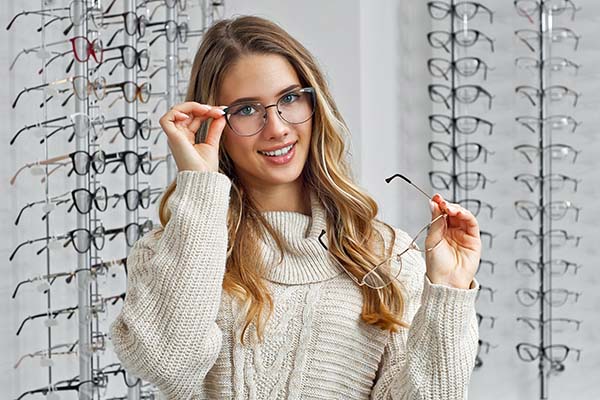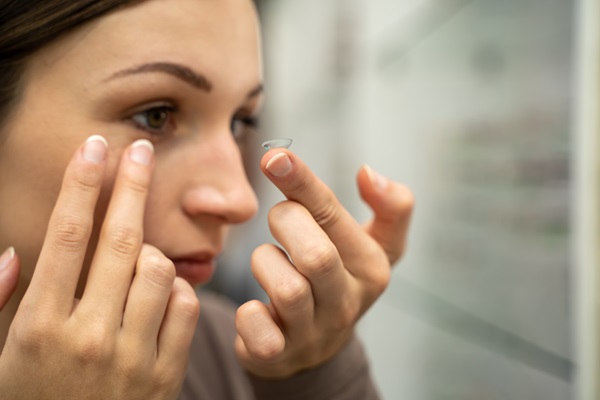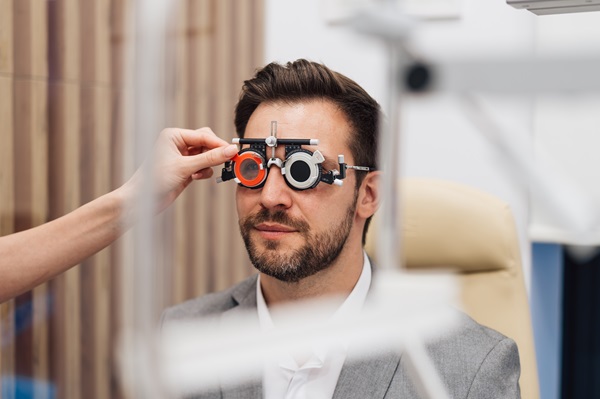Understanding the Process of Getting Prescription Glasses

Getting prescription glasses can be a daunting task. The technical jargon, different types of lenses, and eye examinations can make the process seem overwhelming. However, getting prescription glasses becomes a straightforward and rewarding process when you clearly understand the different steps, and an optometrist and their team can help you along the way.
Step 1. Schedule a comprehensive eye examination
The first step in getting prescription glasses is to schedule an appointment with an optometrist. An optometrist is a licensed healthcare professional who specializes in examining and diagnosing eye-related issues. During the appointment, the optometrist will conduct a comprehensive eye examination to assess the overall health of a patient's eyes.
A comprehensive eye examination is a critical part of the process. This appointment helps the optometrist evaluate one's eye health, identify any underlying conditions, and prescribe the correct lenses to address an individual's visual needs. The exam typically includes various tests, such as:
- Visual acuity test: This test involves reading letters from a standardized eye chart to determine the sharpness of the patient's vision.
- Refraction test: The optometrist uses a phoropter, an instrument with multiple lenses, to assess the level of nearsightedness, farsightedness, or astigmatism the patient may have.
- Eye health evaluation: This test evaluates the patient's eyes' internal and external structures, checking for any signs of eye diseases or conditions.
- Pupil dilation: In certain cases, the optometrist may need to dilate the patient's pupils using eye drops to get a better view of the retina and optic nerve.
Step 2: Getting the prescription
After the eye examination, the optometrist will provide the patient with a prescription for corrective lenses if they need one. It will include details about the patient's vision correction requirements, such as the lenses needed for each eye and any additional specifications, such as progressive or bifocal lenses. The prescription is an essential guide for an optician in crafting a pair of glasses tailored to the patient's unique visual needs and preferences.
Step 3: Selecting frames and lenses
With the prescription, the patient can explore a variety of frames and lens options. An optician, a trained professional specializing in fitting eyeglasses, can help choose the frames that suit the patient's face shape, personal style, and lifestyle preferences. They can also guide the patient through different lens materials and coatings, such as blue light filtering and photochromic lenses. For example, if a person has a higher prescription on one lens, the optician may recommend plastic, round frames to ensure the glasses fit and work properly.
Once the patient selects their frames and lenses, the optician will take precise measurements to ensure the glasses fit comfortably on their face. Proper fitting is essential to avoid discomfort and optimize one's visual clarity.
Step 4: Receiving and ensuring the quality of the glasses
It typically takes two weeks to a month to make the glasses. The optician may adjust the frames a final time for a comfortable fit, considering factors like nose pad position and temple arm length. If the initial fit is uncomfortable, the optician can use special tools to adjust them.
The optician also performs a quality check to verify that the lenses meet the specifications outlined in their prescription. This extra step ensures that the glasses accurately correct their vision and provide the best visual experience.
Step 5: Follow-up and routine eye care
Once a person begins to wear prescription glasses, it is important for them to attend routine eye examinations with their optometrist. Regular checkups allow the optometrist to monitor their eye health and update their eyeglass prescription as necessary. In addition, they can identify any changes in their eye health that may require further testing and treatment.
In-office versus online prescription glasses
In recent years, it has become popular to get prescription glasses from an online store. While online retailers offer convenience and a wide range of choices, there are several advantages of opting for in-office prescription glasses, such as:
Personalized and professional assistance
Choosing in-office prescription glasses provides people with personalized and professional assistance from trained opticians and optometrists. In addition, optical professionals have the tools and technology to precisely measure each patient's refractive error, allowing them to create lenses that fit each patient's visual needs.
Immediate frame selection and customization
In-office opticians also offer the opportunity to physically try on various frames, allowing individuals to assess how they look and feel on their face. This hands-on experience lets patients decide which frames best suit their features, style, and comfort preferences. In contrast, online retailers only provide virtual try-on tools, which only partially capture the fit and feel of the glasses on their face.
Assistance and adjustments
When patients get their prescription glasses in-store, they have the advantage of immediate assistance and adjustments. If an individual has any issues with their glasses or finds that the fit needs to be modified, they can return to the optical store for prompt adjustments or repairs. This convenience ensures that the glasses provide maximum comfort and functionality from the moment the patient receives them.
Schedule an eye examination today
The process of getting prescription glasses starts with a comprehensive eye examination. If you are due for an eye examination or think you need prescription lenses, call our office to get started. Begin the journey to clearer vision and make an appointment today.
Request an appointment here: https://www.texasoptical.net or call Texas Optical at (214) 771-7333 for an appointment in our Dallas office.
Check out what others are saying about our services on Yelp: Read our Yelp reviews.
Recent Posts
A contact lens exam is slightly different from an eyeglass prescription exam. Though both correctives are great for helping you see clearly, contact lenses can be a better fit for certain individuals, such as those who live more active lifestyles. Take a closer look at what you can expect during your upcoming examination.A general eye…
Regular eye exams are crucial for maintaining overall health for people of all ages. By establishing a relationship with an optometrist, you not only protect and enhance your vision but also safeguard against potential health issues. This comprehensive guide highlights the benefits of maintaining a connection with our office, a practice that benefits everyone in…
Your eye health is an essential part of your overall health. Regular checkups with an eye doctor can often prevent many eye issues and complications, catching them in their early stages. Here are three key signs that it might be time to visit an eye doctor.Eye discomfort can appear in many ways. While occasional eye…
Proper vision care can address eye strain and reduce its uncomfortable symptoms. An optometrist will also help to prevent future eye strain. Thus, while there are many ways to strain your eyes, there are many changes you can make to give them a break.Straining the eyes can bring all sorts of symptoms. As a result,…


